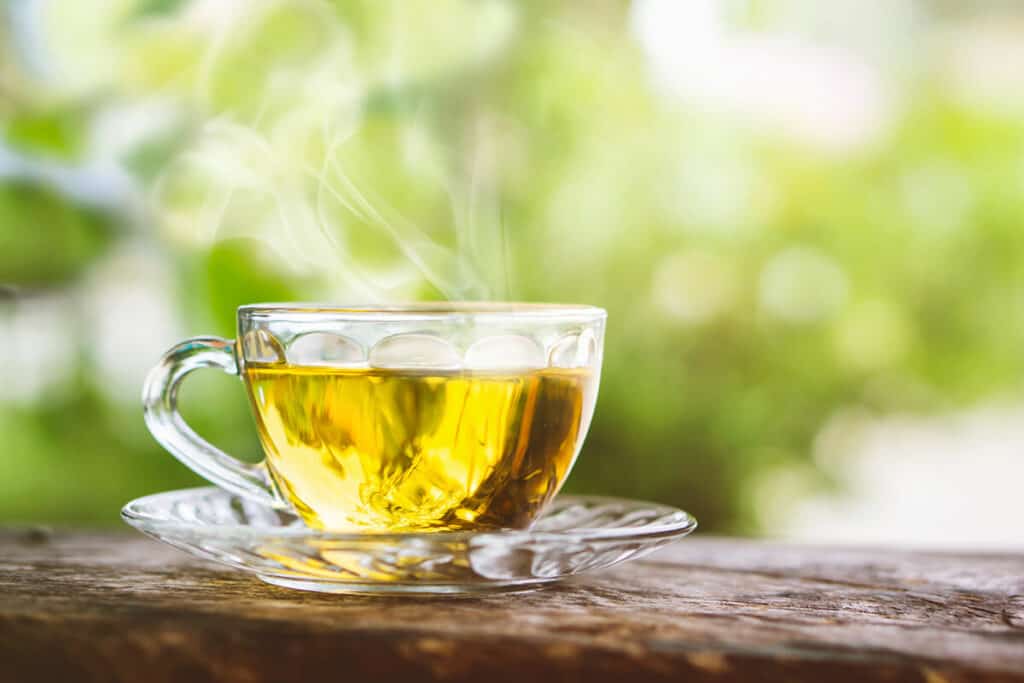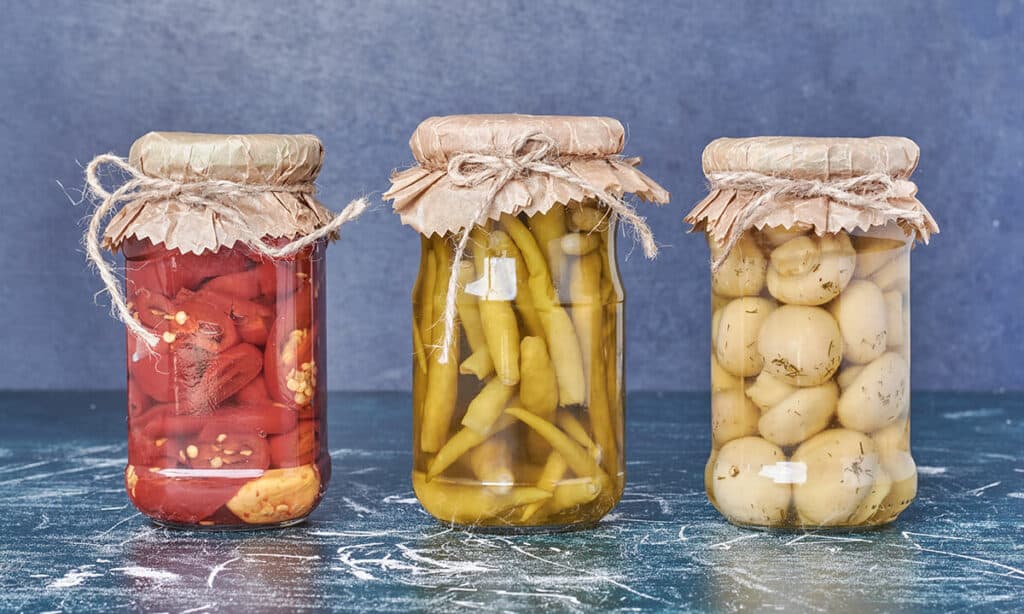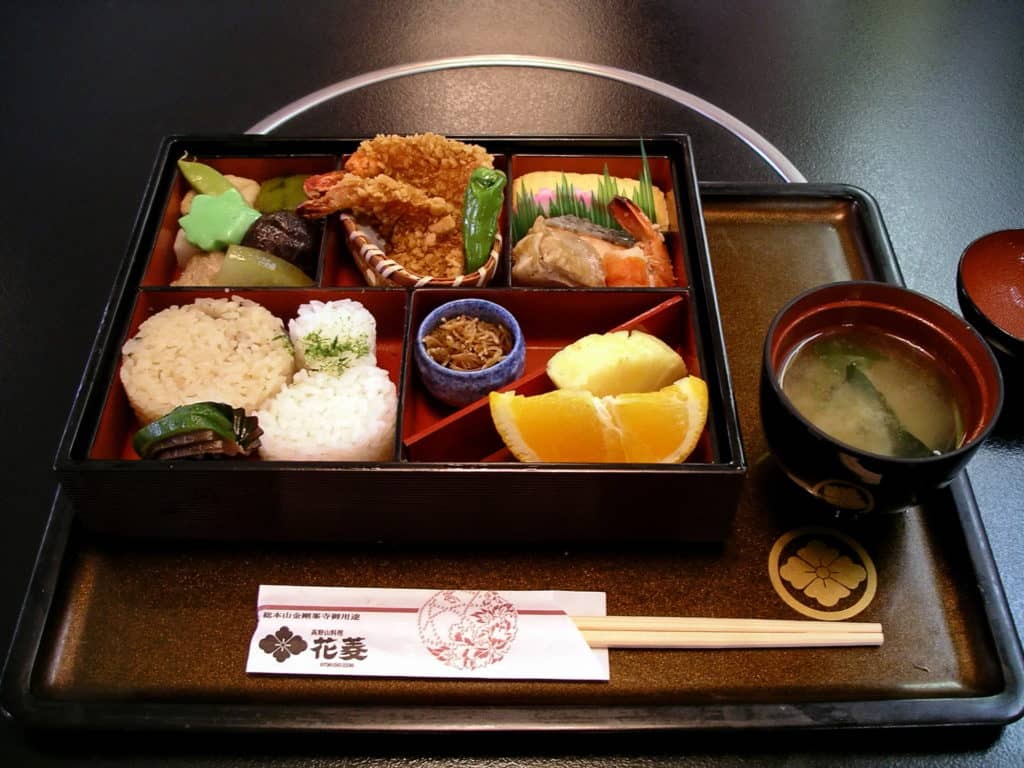Japanese culture is beautiful. It’s full of peaceful people and joyful traditions. Japan is an archipelago made up of four major islands and over 6,000 minor ones. It is home to a wide range of geographical, cultural and historical diversity. Japanese women are known for their delicate, slim and youthful looks. On top of the outward beauty, the life expectancy of Japanese people is the highest in the world. This is due to Japanese culture, and the lifestyle choices they make. Unlike an individualist Western country, the Japanese take pride in belonging to a group and functioning together. Their lives are embedded with the idea of being better in a group and they love the feeling. Day in and day out, the goal of the Japanese people is making their country a better and more efficient place. Every single part of their day is committed to efficiency, health, and improvement.

Green tea. Freepik.
1. Frequently Drinking Green Tea
Green tea has long been reputed to be one of the healthiest drinks on the planet. It has been used in China since the 8th century and has made its way across every continent. Green tea is made from un-oxidized leaves of the Camellia sinensis bush. Green tea has long been used in many cultures for its various medicinal properties. In Indian culture, it’s used to control bleeding and even support healing wounds. It also aids digestion, improves mental and heart health, and regulates body temperature. It’s full of antioxidants and nutrients and has a powerful effect on health when it’s consumed. The leaves used to make green tea contain bioactive compounds and phytonutrients like flavonoid and catechins. Green tea contains a catechin called epigallocatechin-3-gallate (EGCG). Catechins are natural antioxidants that help prevent cell damage and provide other benefits.

Fermented foods. Freepik.
2. Consuming Fermented Foods
Fermentation is a metabolic process that uses natural microorganisms like bacteria or yeast to feed on sugars and starch. This process preserves the food and creates beneficial enzymes, B-vitamins, omega-3 fatty acids, and probiotics. It’s possible that the probiotics consumed from daily diets that include fermented foods may contribute to longevity and healthy aging. There are many factors correlated with healthy aging (including genes), but diet seems to play a huge role in the formula for aging well and in maintaining quality of life. Aside from adding “good” bacteria to the gut, fermented foods also increase levels of vitamin A and C and make foods more digestible. This way, you can remove toxins from the body, and eliminate anti-nutrients that interfere with the absorption of healthy vitamins and minerals

Seafood. Freepik.
3. Regular Consumption of Seafood
Japanese cuisine is rife with seafood. You can find a wide array such as squid, fish, octopus, eel, and shellfish. Seafood is a common ingredient in sushi, salad, curry, and tempura. It can also be grilled and served on its own alongside rice and miso soup. Seafood is a rich source of nutrients as it’s full of protein, vitamins, and minerals like B and D vitamins, omega-3 fatty acids and much more. Low in saturated fats, one of the greatest health benefits of a diet high in seafood is the promotion of a healthy heart. The omega-3 fatty acids found in seafood have many health benefits. They’ve been shown to significantly reduce the risk of cardiovascular events like arrhythmia, stroke, and heart attack, are effective at relieving pain caused by rheumatoid arthritis, can lower the risk of age-related macular degeneration, support proper brain growth in babies and children, and even has the potential to treat depression.

Smaller portions. Shutterstock.
4. Eating Smaller Portions
In Japanese culture, the phrase “ichiju-sansai” or “one soup, three sides” is applied at meal times. So a typical Japanese meal usually consists of a staple food like rice or noodles. It is paired with a main dish such as fish, chicken, pork or beef, with side dishes like pickled vegetables and miso soup. This may sound like a large amount of food, but the portions are all smaller-sized and based on seasonal ingredients. Japanese etiquette dictates that different flavors must not touch each other on the same plate. Therefore, every serving is presented on smaller serving plates. As such, the Japanese people generally do not heap their food onto the same plate like we do in Western culture, and this may contribute to their health and wellbeing. Portion size is an important factor in maintaining weight and ensuring you receive all the correct nutrition. With fast food and restaurants serving sizes from small through to extra-large, it’s easy to get confused about how much you should be eating.

Go for a walk to connect with your environment and get exercise. Shutterstock.
5. Walking is a Ritual
Japanese people have discovered that walking has many benefits. It’s a wonderful way to discover and explore the country while getting important exercise. Not only do Japanese people prefer to walk in the overcrowded cities to minimize traffic congestion, walking can also be considered as a Buddhist ritual. Around 90 million people in Japan consider themselves to be Buddhists, and as such many of them undertake the practice of walking meditation. Walking meditation is an easy exercise to do as it doesn’t require any fancy equipment, you just need a comfortable pair of shoes and you’re good to go. It involves deliberately thinking about each step, instead of just walking on autopilot as you normally might. So as you walk, focus on lifting one foot, moving it forward, and putting it down on the ground. Then focus on lifting the other foot, moving it forward, and taking the next step. Notice how your body weight shifts as you begin to walk forward, and simply go forward.
Here are Our Sources:
https://www.turnto23.com/news/health/drinking-green-tea-could-lead-to-longer-life
https://www.bbc.com/future/article/20170601-the-secret-to-a-long-and-healthy-life-eat-less
https://ggia.berkeley.edu/practice/walking_meditation





